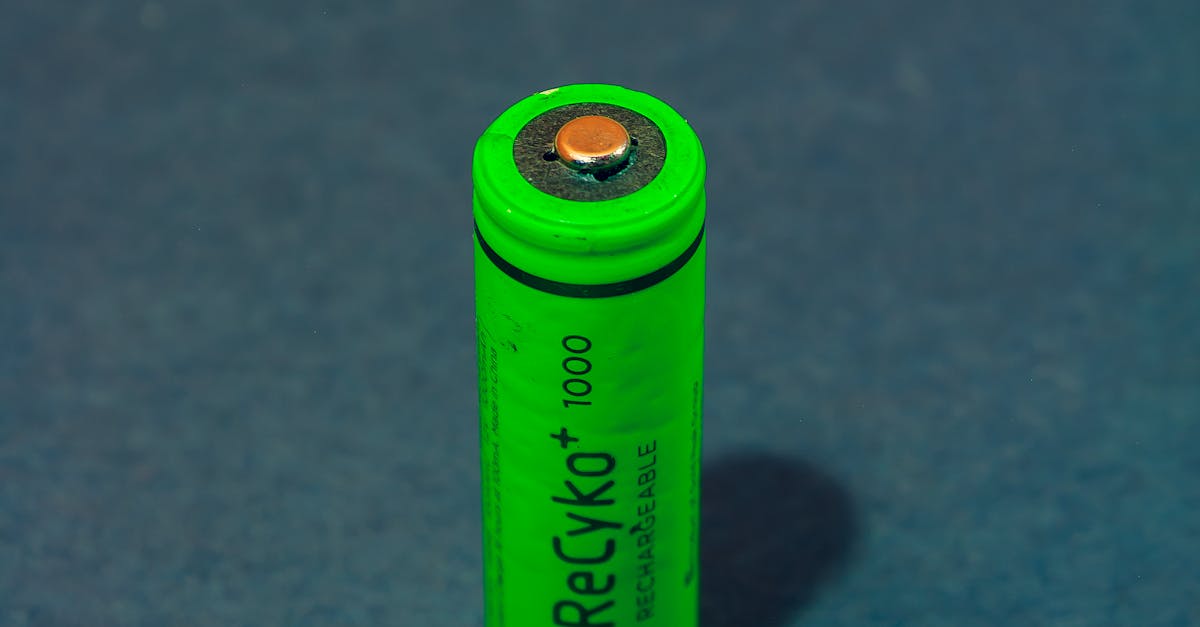
Table Of Contents
Choosing the Right Battery System
When considering home battery storage, it is essential to assess various system options available in the market. Different types of batteries offer varying capacities, lifespans, and charge/discharge rates, which directly impact their suitability for individual needs. Potential users must evaluate their energy consumption patterns and how they align with the features provided by each battery system. A user with consistent energy requirements may benefit from a high-capacity battery, whereas someone with sporadic energy needs might opt for a smaller, more cost-effective solution.
Another critical aspect to consider is the compatibility of the battery system with existing home energy infrastructure. Home battery storage should ideally integrate seamlessly with current electrical setups and any renewable energy sources, such as wind or hydro, if available. Evaluating the ease of installation and potential need for additional components can greatly influence the final choice. Additionally, prospective buyers should also explore the warranty, maintenance requirements, and overall reliability of the systems they are considering to ensure a long-term investment that meets their energy needs.
Factors to Consider
When evaluating the viability of Home Battery Storage without solar energy, several key factors come into play. The initial cost of the battery system can be substantial, requiring careful consideration of your budget and financial goals. It's essential to analyse the long-term savings versus the upfront expenditure, as well as the potential for rising energy prices. Location also plays a role; areas with frequent power outages may see a quicker return on investment through enhanced energy reliability.
Another important aspect to consider is the compatibility of your home’s electrical system with the battery technology. Some systems may require specific installations or upgrades, which can add to overall costs. Additionally, assessing your energy consumption patterns can provide insights into the size and capacity needed for your Home Battery Storage solution. Understanding these factors helps to equip homeowners with the knowledge necessary to make informed decisions regarding battery storage.
Comparing Battery Storage Options
When comparing battery storage options, it is essential to evaluate the specific energy needs of a household. Different technologies offer varying capacities, discharge rates, and lifespans. Lithium-ion batteries are popular due to their efficiency and compact size, making them suitable for residential use. Alternatively, other options, such as lead-acid batteries, may provide a lower upfront cost but come with a shorter lifespan and lower depth of discharge, which can affect the overall energy management strategy.
In addition to technology, the integration of Home Battery Storage within existing energy systems must be considered. Compatibility with various energy sources, such as grid supply or generators, plays a crucial role in achieving optimal energy utilisation. Assessing the potential for energy arbitrage—buying electricity at low rates and using stored energy during peak times—can influence the return on investment. Ultimately, a thorough evaluation of both technology and integration will guide homeowners to the most suitable battery storage solution for their needs.
Types of Battery Technologies Available
A variety of battery technologies are available for home battery storage, each with distinct characteristics and applications. Lithium-ion batteries dominate the market due to their high energy density and efficiency. These batteries charge quickly and have a relatively long lifespan, making them suitable for homeowners looking for reliable energy solutions. Lead-acid batteries, while less popular for new installations, remain a cost-effective option for those with limited budgets. They provide lower upfront costs but tend to be heavier and require more maintenance than their lithium counterparts.
Beyond lithium-ion and lead-acid, more niche technologies, such as flow batteries and sodium-ion systems, are gaining attention. Flow batteries offer the advantage of being easily scalable, which is useful for larger homes or community storage solutions. Sodium-ion batteries present a promising alternative, utilising more abundant materials, potentially lowering costs and enhancing sustainability. Each technology has its own set of advantages and drawbacks, making informed choices essential for effective home battery storage integration.
Regulatory and Incentive Landscape
The regulatory landscape surrounding Home Battery Storage is evolving as governments recognise the importance of energy independence and sustainability. Various initiatives are being introduced to encourage the adoption of battery systems. These can include streamlined permitting processes and updated building codes to facilitate installation. In certain regions, local councils are offering rebates or low-interest loans aimed at reducing the upfront costs associated with Home Battery Storage implementations, enhancing accessibility for homeowners.
Incentives can vary significantly depending on the jurisdiction, making it essential for potential buyers to research what programmes are available in their area. Some governments provide tax credits or grants to offset the cost of purchasing and installing a battery system. Staying informed about these opportunities not only helps in making a financially sound decision but also supports the broader shift towards renewable energy solutions. As awareness of the benefits of Home Battery Storage grows, the regulatory framework will likely continue to adapt in favour of consumers and the environment.
Government Incentives for Battery Installations
Government incentives play a significant role in making home battery storage systems more financially viable for homeowners. Various schemes exist that aim to alleviate the upfront costs associated with battery installations. These grants and rebates can vary based on the region and local policies, often targeting households looking to enhance energy resilience or transition towards greener energy sources. Some governments also offer tax credits that further reduce the overall investment required for installing battery technology.
In addition to financial incentives, some regions provide financing options specifically tailored for energy storage systems. These options make it easier for homeowners to manage initial expenses while still reaping the benefits of energy independence and efficiency. By showcasing the value of home battery storage, these programmes encourage greater adoption, ultimately contributing to broader energy goals and sustainability efforts across communities.
FAQS
Can I use battery storage without solar panels?
Yes, battery storage can be used independently of solar panels. It can store electricity from the grid during off-peak hours when rates are lower, allowing you to use that stored energy during peak hours when electricity costs are higher.
What are the main factors to consider when choosing a battery system?
Key factors include the capacity of the battery, discharge rate, lifespan, warranty, installation costs, and compatibility with your existing electrical system. It's important to assess your energy needs to determine the right battery system for you.
What types of battery technologies are available for storage?
The most common battery technologies include lithium-ion, lead-acid, and flow batteries. Each type has its own advantages and disadvantages in terms of cost, efficiency, and lifespan, so it's important to research which option best suits your requirements.
Are there any government incentives available for battery installations?
Yes, many governments offer incentives for battery installations, such as tax credits, rebates, or grants. These incentives can significantly reduce the overall cost of the battery system, making it a more attractive investment even without solar panels.
Is battery storage a good investment if I don't have solar panels?
Battery storage can still be a worthwhile investment, especially if you experience high electricity rates or frequent outages. It allows for greater energy independence and can potentially save money in the long run by optimising energy usage. However, the overall value may depend on your specific circumstances and energy consumption patterns.




